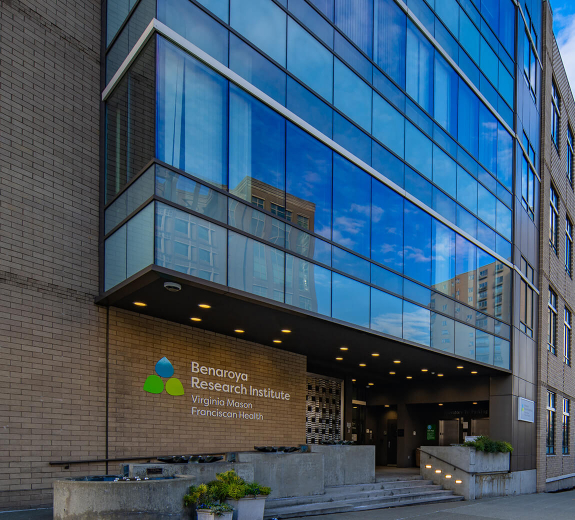The National Institute of Allergy and Infectious Diseases (NIAID), part of the National Institutes of Health, has named Gerald T. Nepom, MD, PhD, the director of the Immune Tolerance Network, one of the largest government-funded clinical research networks in the country working to establish new treatments for diseases of the immune system. Dr. Nepom is presently the director of Benaroya Research Institute at Virginia Mason (BRI) and will maintain both positions providing scientific oversight and management. The appointment includes a $1 million management contract for BRI in 2010. This confirms BRI’s international leadership role in immunology research.
Former director and founder of the ITN, Jeffrey A. Bluestone, PhD, recently stepped aside to assume the role of executive vice chancellor and provost at the University of California San Francisco, where the ITN has been based.
The ITN, founded in 1999, is currently operating a $224 million seven-year contract from NIAID, in partnership with the Juvenile Diabetes Research Foundation (JDRF). The ITN conducts clinical trials of specialized immune tolerance therapies for the prevention of organ transplant rejection (in liver, kidney and islet transplantation); the treatment of autoimmune diseases (such as type 1 diabetes, multiple sclerosis, lupus and others); and the prevention and treatment of allergies and asthma.
The ITN, with offices in San Francisco, Bethesda, Md., Pittsburgh, Pa. and now Seattle, has 87 full-time employees and operates at 200 clinical sites around the world. Since 1999, the ITN has reviewed more than 250 research proposals and is conducting or has completed 28 clinical trials, many considered "first in man" or "first of its kind" research. The consortium is led by a steering committee of some of the world’s foremost authorities on immune tolerance – doctors, basic and clinical researchers and technology professionals from academia, government and industry.
The appointment is somewhat of a homecoming for Nepom, who oversaw one of the ITN’s core laboratories during its first contract period between 1999 and 2006. Dr. Nepom’s pioneering work has focused on the relationship between genetics and autoimmune diseases. He foresaw the necessity of linking laboratory-based study of diseases with practical patient-based research to improve treatment and management of diseases. This year marks the 25th anniversary of his founding the immunology programs at BRI, leading an effort to build the institute into a dynamic research center in Seattle, devoted to bridging basic and clinical immunology.
"This is an exciting time in autoimmune disease research" said Dr. Nepom. "We have a tremendous opportunity to link scientific advances with innovative clinical research efforts to treat autoimmune and immune-mediated diseases."
"I’m so pleased NIAID selected Dr. Nepom. His leadership is invaluable to advancing science and eliminating autoimmune diseases that affect one in 20 Americans," said Senator Patty Murray. "Research in this field is so important to our families because more people in our community have autoimmune diseases."
Dr. Nepom is an internationally renowned immunologist and leader in autoimmune disease research. Dr. Nepom has previously served as a leader in several organizations within the scientific community, including the NIAID Autoimmunity Prevention Centers and the JDRF Autoimmunity Centers of Excellence. He also is immediate past president of FOCIS, the Federation of Clinical Immunology Societies, a world-wide organization dedicated to interdisciplinary research and education in translational immunology.
The National Institute of Allergy and Infectious Diseases (NIAID) conducts and supports research —at the National Institutes of Health (NIH), throughout the United States and worldwide — to study the causes of infectious and immune-mediated diseases, and to develop better means of preventing, diagnosing and treating these illnesses. News releases, fact sheets and other NIAID-related materials are available on the NIAID Web site at niaid.nih.gov.
The National Institutes of Health (NIH) — The Nation's Medical Research Agency — includes 27 Institutes and Centers and is a component of the U. S. Department of Health and Human Services. It is the primary federal agency for conducting and supporting basic, clinical and translational medical research, and it investigates the causes, treatments and cures for both common and rare diseases. For more information about NIH and its programs, visit nih.gov.



